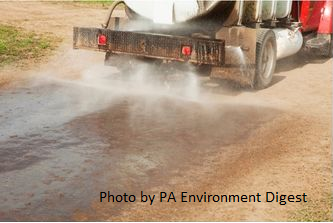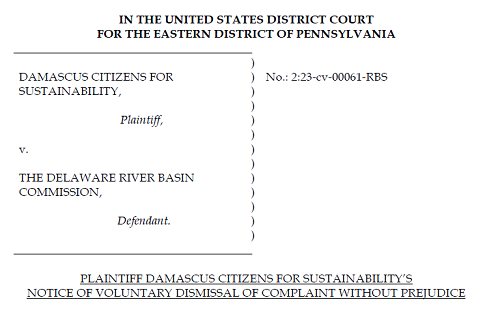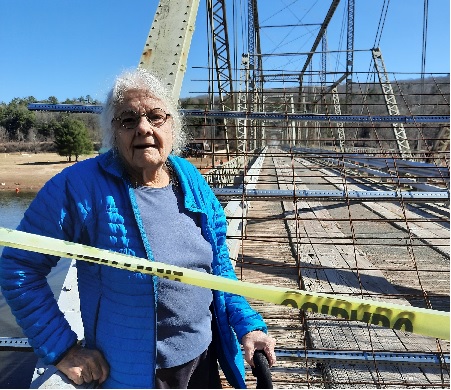
Agency Clarifies Frack Waste Ban in Delaware River Watershed
April 30, 2023
How Niggling About a Definition Kept Poison Out of Your Backyard
May 13, 2023DRBC clarifies waste rules in response to DCS challenge: ‘Conventional’ label no longer a loophole.
In January 2023, Damascus Citizens for Sustainability (DCS) filed a legal complaint challenging a loophole in Delaware River Basin Commission’s new regulations regarding importing frack waste into the basin. It was the only entity to sound the alarm on this potential catastrophe. As a direct result, the DRBC’s revised FAQs removed this loophole, now making it crystal clear that regardless of well label, discharge of any imported wastewater from any well subject to high-volume hydraulic fracturing (or mixtures with some fracked waste) is not allowed.
In December 2022, DRBC (Delaware River Basin Commission) issued regulations governing high-volume hydraulic fracturing wastewater in the river basin. As issued on December 7, those rules, along with their accompanying FAQs issued after the vote, would have allowed for the import of oil and gas drilling wastewater from wells labelled “conventional” to be not only imported, but directly discharged, into the basin. The FAQs stated that “…road spreading of wastewater from conventional drilling activities” is “an activity not within the scope of DRBC’s proposed rulemaking,” opening the door for discharge of highly toxic substances. In PA “conventional” is defined only by the targeted shale formation (e.g. Marcellus). But regardless of label, almost all oil/gas wells are fracked (according to the US Energy Information Agency), and exemptions held by the oil and gas industry mean they do not have to track the waste. That leaves no way of distinguishing between waste from “conventional” and unconventional wells. Thus drivers coming into the river valley could simply allege that the waste in their trucks is from conventional wells, enabling it to be spread on roads and more, dumping toxic, radioactive waste onto surfaces that drain into the Delaware River.
When asked why DCS agreed to drop the lawsuit, Director Barbara Arrindell replied, “Because we won! The FAQ’s were changed, and because the case is being dismissed without prejudice, we retain the right to follow the situation and return to the court with any issues that arise”.
The new FAQs clarify some other points, including a statement that they will be reviewing the possibility of imposing restrictions on discharge even from wells not treated via high-volume hydraulic fracturing. Arrindell continued, “This is very good news; the changes were made quickly and in direct response to our filing suit”. And as the AP article about this closes with, The agency “has thankfully seen the light,” said Barbara Arrindell, the group’s director. ”We are glad to see DRBC fulfilling its role to proactively protect the Delaware River Basin.”
Download this DCS Press Release as a pdf.
Download the DCS voluntary dismissal document as a pdf.
Download the DRBC motion to dismiss the DCS lawsuit as a pdf.
Damascus Citizens for Sustainability (DCS) is an environmental non-profit founded in 2008 in the upper Delaware River Basin to fight fossil fuel development and impacts. Your donation today helps us continue this important work.




